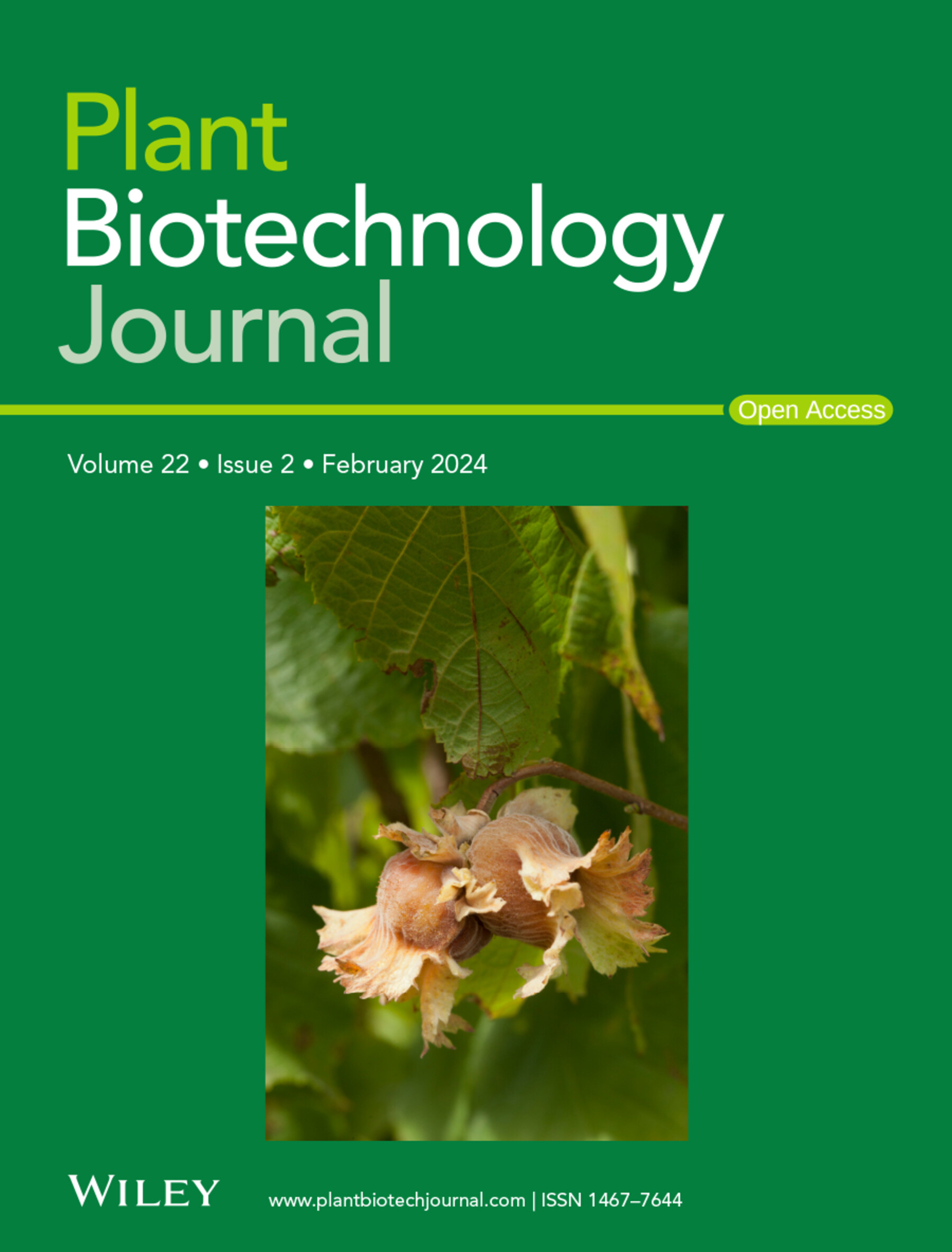CmPPR4 gene controls drought resilience in melon ecotypes
IF 10.1
1区 生物学
Q1 BIOTECHNOLOGY & APPLIED MICROBIOLOGY
引用次数: 0
Abstract
Global climate change has rendered drought stress an increasing threat to sustainable crop production. Melon (Cucumis melo) crop is widely cultivated worldwide, and has been classified into two subspecies C. melo ssp. melo and C. melo ssp. agrestis with greater drought tolerance variation. However, the genetic basis for the difference in drought resilience between two subspecies ecotypes remains unclear. In this study, we constructed an F8 recombinant inbred lines (RILs) population generated by crossing drought-tolerant C. melo ssp. melo with drought-sensitive C. melo ssp. agrestis and identified a CmPPR4 gene that encoded a pentatricopeptide repeat (PPR) protein highly associated with drought tolerance. A single nucleotide polymorphism (SNP) variation in CmPPR4 resulted in a nonsynonymous mutation, leading to reduced drought resilience in C. melo ssp. agrestis. The geographical distribution of CmPPR4 genotypes among 297 melon accessions closely parallels global annual precipitation patterns. Furthermore, the diminished drought tolerant capacity in RNA silencing seedlings and enhanced drought tolerance in overexpression lines further confirmed CmPPR4 as a crucial regulator of drought tolerance in melon. Collectively, our findings provide new insights into the crucial role of CmPPR4 in regulating drought tolerance of melon ecotypes, promoting molecular breeding of water-saving and drought-resilient melon cultivars.CmPPR4基因控制甜瓜生态型的抗旱性
全球气候变化使干旱压力对可持续作物生产的威胁日益严重。甜瓜(Cucumis melo)是世界上广泛种植的作物,被分为两个亚种 C. melo ssp.然而,两个亚种生态型抗旱性差异的遗传基础仍不清楚。在本研究中,我们构建了一个由耐旱甜瓜与对干旱敏感的甜瓜杂交产生的 F8 重组近交系(RILs)群体,并鉴定了一个 CmPPR4 基因,该基因编码一种与耐旱性高度相关的五肽重复(PPR)蛋白。CmPPR4 基因的单核苷酸多态性(SNP)变异导致了非同义突变,从而降低了西甜瓜的抗旱能力。297 个甜瓜品种中 CmPPR4 基因型的地理分布与全球年降水量模式密切相关。此外,RNA 沉默幼苗的抗旱能力减弱,而过表达株系的抗旱能力增强,进一步证实了 CmPPR4 是甜瓜抗旱能力的关键调控因子。总之,我们的研究结果为了解 CmPPR4 在调节甜瓜生态型耐旱性中的关键作用提供了新的视角,促进了节水抗旱甜瓜栽培品种的分子育种。
本文章由计算机程序翻译,如有差异,请以英文原文为准。
求助全文
约1分钟内获得全文
求助全文
来源期刊

Plant Biotechnology Journal
生物-生物工程与应用微生物
CiteScore
20.50
自引率
2.90%
发文量
201
审稿时长
1 months
期刊介绍:
Plant Biotechnology Journal aspires to publish original research and insightful reviews of high impact, authored by prominent researchers in applied plant science. The journal places a special emphasis on molecular plant sciences and their practical applications through plant biotechnology. Our goal is to establish a platform for showcasing significant advances in the field, encompassing curiosity-driven studies with potential applications, strategic research in plant biotechnology, scientific analysis of crucial issues for the beneficial utilization of plant sciences, and assessments of the performance of plant biotechnology products in practical applications.
 求助内容:
求助内容: 应助结果提醒方式:
应助结果提醒方式:


